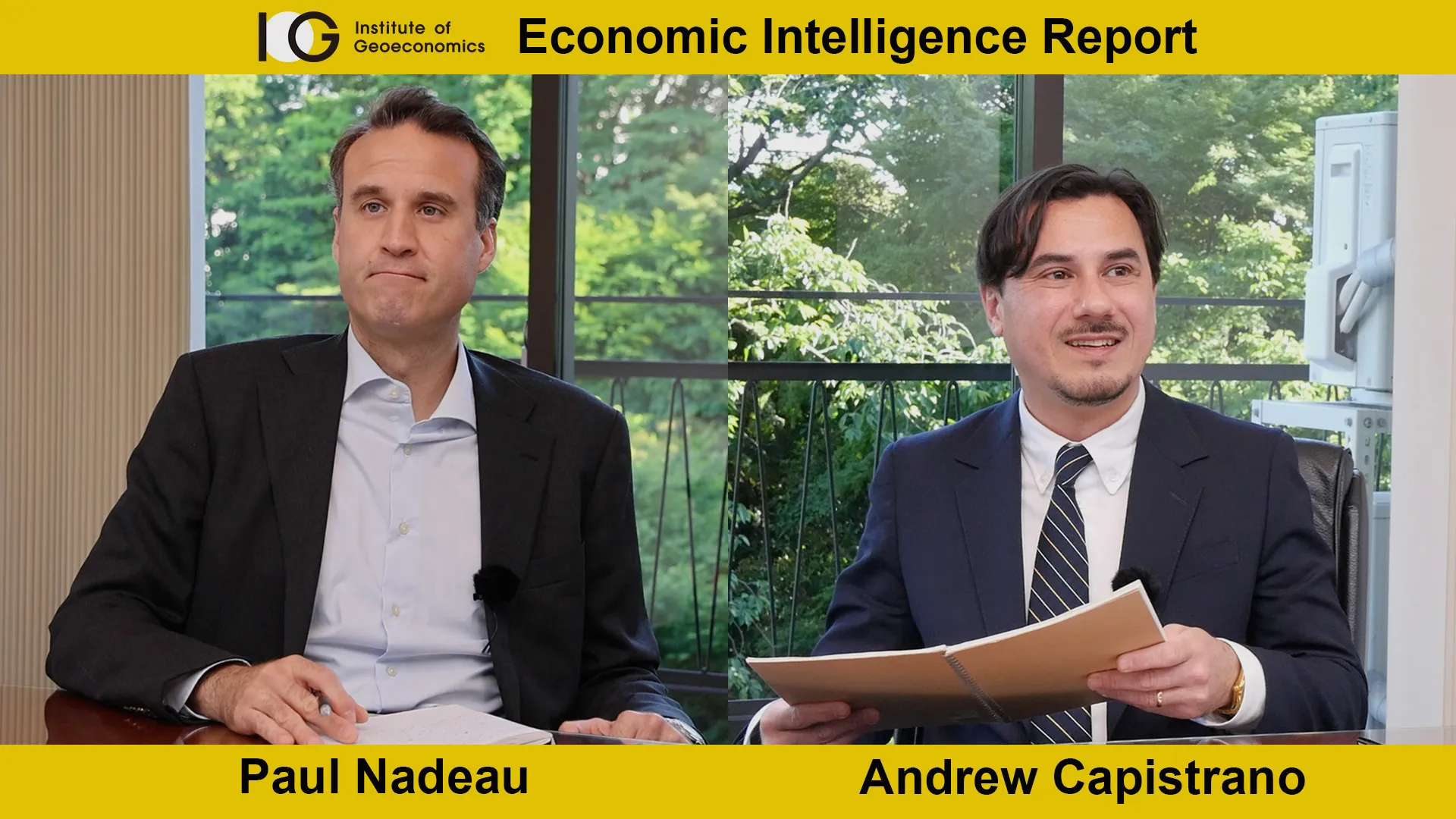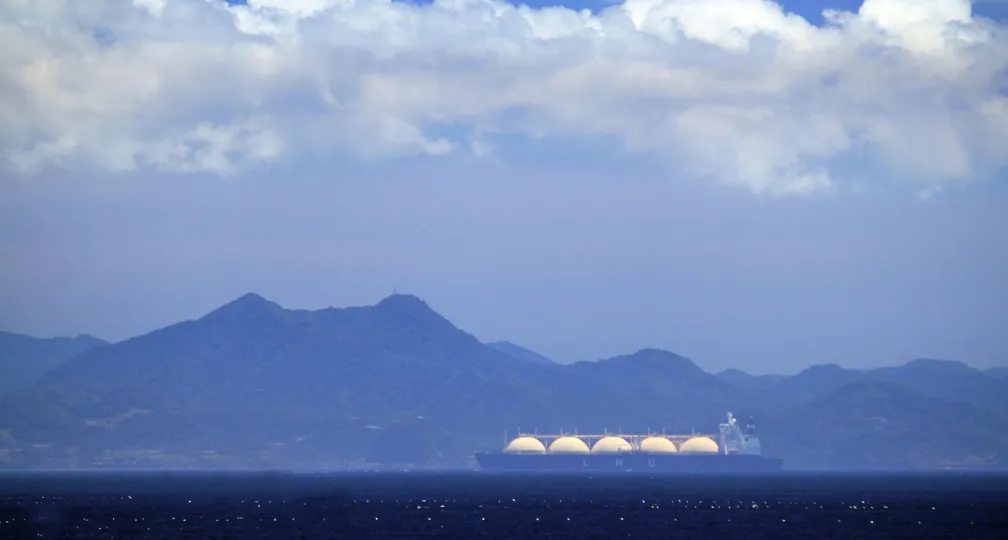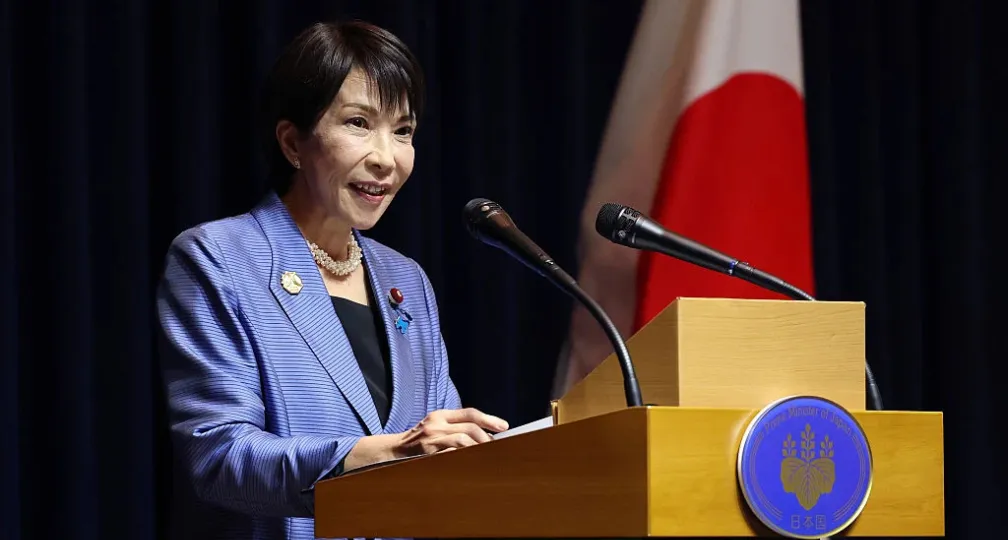IOG Economic Intelligence Report (Vol. 2 No. 4)

The latest regulatory developments on economic security & geoeconomics
Closing Loopholes: In a speech at the Council on Foreign Relations in Washington, Wally Adeyemo, deputy treasury secretary for International Affairs, warned Chinese companies against providing technology to Russia or other similar support, warning of “steep” penalties for violators. He noted that several countries had deepened their financial and ties with Russia since the invasion began and other markets closed off following the sanctions levied against Russia in response. The EU is also considering new measures to punish those helping Russia circumvent sanctions. A draft proposal, reported by Bloomberg, would include expanding the basis for which firms and countries may be sanctioned, increase the EU’s capacity to monitor potential violations, and more.
Warning Signs? : South Korea’s semiconductor exports dove 43.9 percent in the first 20 days of the new quarter due to lower demand and higher energy prices. While this may be a result of the “silicon cycle,” the boom-and-bust pattern of semiconductor consumptions, reports have seen the downturn as a worrying sign for both the semiconductor industry and for the world economy as a whole given the correlation between the country’s semiconductor exports and global economic health. The outlook is grim given the prospect of central bank tightening around the globe, the ongoing war in Ukraine, and uncertainties about China’s economic recovery.
A New Pacific Partner: UK Business & Trade Secretary Kemi Badenoch said that she expects the United Kingdom to enter the Trans-Pacific Partnership this year. Japan, as leader of the TPP’s ascensions working group, said that Britain has been approved to negotiate the next stage of the ascension process on February 17.
Another Round: The U.S. Commerce Department joined a negotiating round for the Indo-Pacific Economic Framework (IPEF) in New Delhi, India from February 8-11. According to the read-out from the Commerce Department, there were text-based discussions on pillars covering supply chains, clean economy, and fair economy. The read-out added that the parties “reaffirmed their commitments to continuing collaboration to expeditiously conclude agreements that include high-standard outcomes” but did not offer details on specific agreements during the talks. This follows the December 2022 negotiating round in Brisbane, Australia while details of the next in-person negotiating round are forthcoming.
Deflating Chinese Surveillance: The U.S. Commerce Department added six Chinese aerospace companies to a trade blacklist for their involvement in China’s surveillance efforts in retaliation for the appearance of a Chinese surveillance balloon in U.S. airspace. The new restrictions join the existing efforts by the United States to constrain China’s military and intelligence ambitions.
Sideline Report: U.S. Trade Representative Katherine Tai and EU Commissioner for Trade Valdis Dombrovskis met on the sidelines of the Munich Security Conference to discuss the two sides’ issues with the Inflation Reduction Act which stipulated that the only countries which could qualify for electric vehicle credits are those with whom the United States has a free trade agreement, which does not include the EU. They announced that they’ll meet again during Dombrovskis’s visit to Washington on March 1-3, surreptitiously coinciding with the release of the U.S. Treasury Department’s criteria of what qualifies as a free trade agreement.
Targeting Trade Cheats: The Senate Finance Committee is working on legislation that would strengthen the U.S. Customs & Border Patrol’s ability to block the import of counterfeits, goods made with forced labor or that include stolen intellectual property, or goods containing illegally harvested products. Ron Wyden, Finance Committee Chair, said that trade in these goods costs the U.S. economy $600 billion per year with 33 percent of seizures coming from China, followed by 18 percent from Hong Kong and 11 percent from Turkey.
Analysis: Putin’s Invasion and the Long Game of Geoeconomics
The world recently marked the one year anniversary of Russia’s invasion of Ukraine and given the state of the conflict, it seems that this will not be the only such anniversary to observe. As the war drags on, questions of economics, industrial capacity, and sustaining the effort will become more important. On the surface, these dynamics might give an advantage to the countries supporting Ukraine, but unintended consequences are never far and geoeconomic outcomes are difficult to control.
Many of the gloomy assessments of the impact of the West’s geoeconomic statecraft towards Russia seem to suffer from a gap in expectations. It’s true that the threat of sanctions didn’t stop Putin from launching his invasion, but the Russian economy was better prepared for sanctions in 2022 than it was in 2014 following its annexation of Crimea, and the nature of deterrence is that it sometimes fails. If one of the goals of supporting Ukraine is to defend the rules-based order, then simply levying punishment for violations of that order are an important signal that major rules cannot be broken with impunity. While sanctions can’t stop the tanks once they’re rolling, they can still squeeze Russia’s ability to wage war by restricting its access to materials & technology, currency, and constraining the market for its exports. While sanctions may not have sent Russia’s economy into freefall, they’ve helped expose its structural weaknesses – something that Putin could not or would not fix during periods of high oil prices and peace, and now something that will probably be impossible to solve in the midst of a draining war with no obvious end in sight.
Russia’s economy shrank at least 2.2 percent in 2022,a bad performance but not a freefall, reflecting the fact that it’s gotten better at economic countermeasures following the sanctions imposed in 2014. At the same time, the political economy of Putin’s Russia was to use oil & gas exports to finance military expenditures, distribute rents among stakeholders, and to support state finances. That model may no longer be viable. Oil and gas revenues have fallen precipitously. Russia is losing its ability to increase production or sell overseas to raise revenues, with the International Energy Agency predicting that Russia will lose $1 trillion in oil & gas revenues by 2030. Its exclusion from foreign capital markets also means that it cannot borrow money. War is expensive and the rising costs of paying for that coupled with the declining income from lost oil revenues puts Putin in a situation where his governance model of using oil & gas revenues to fund the military and secure political support may no longer be workable.
There have been costs in other ways as well. Semiconductor exports to Russia have dropped 70 percent following export controls imposed by the United States and 37 other countries following Russia’s invasion.Over 1000 companies have curtailed their operations in Russia. In a recent speech, Thea Rozman Kendler, assistant secretary of Commerce for export administration in the Bureau of Industry and Security, said that Russian production of hypersonic missiles had nearly ceased and suggested that chips fabricated and allocated for automobile production had been redirected towards military use. Relatedly, it seems that sanctions and the resulting reallocation of production have led to a downturn in Russia’s manufacturing sector, with automotive production having dropped 70 percent. Outward migration and brain drain from Russia – along with working-aged males being pressed into military service – will also probably make it impossible for Russia to try to replace any of these technologies on its own. As a Russian economist put it, Putin can focus on mobilization or the economy, but probably not both.
Meanwhile, the countries supporting Ukraine are realizing that economic warfare isn’t cost-free. The designers of sanctions had to balance a “nuclear option” that they thought could stop the war with the collateral damage that they could inadvertently cause on their own economies. A major reason why sanctions may not have been as “decisive” as they could have been is to avoid causing economic damage on the home front that might undermine domestic political support for backing Ukraine. While European countries have deprived Putin of a key source of revenue by turning away from Russian gas, that decision has also put pressure on Europe’s own productivity and raising the risks of a prolonged recession.
For another thing, Ukraine is using the ammunition provided more quickly than it can be replaced, with the Financial Times describing it as an ammunition supply chain “crisis.” Companies are increasing production by hiring more people, accelerating production schedules, and with defense planners asking Ukraine to use less ammunition. But given the capital investments necessary, long lead times, difficulties with sourcing materials, and more, the situation shows that ammunition is not bottomless and that the arms industry is susceptible to the same supply chain bottlenecks as everyone else. For its part, Russia’s industrial base is in even worse shape and now facing added challenges from sanctions and export controls. Sanctions and export controls on semiconductors have put pressure on Russia’s stock of precision-guided missiles and other high-end weaponry.
Russia also has tools of its own. Russia of course halted Ukraine’s grain exports through the Black Sea, and what had once been enough grain to feed 400 million people dropped to zero after the invasion, making the invasion go global by raising the price of grain to near crisis levels. The United Nations and Turkey helped negotiate a deal that saw 21.5 million tons of Ukrainian produce shipped overseas, but (at the time of writing) the deal’s renewal hangs in the balance.
Russia has also developed economic ties with states like Iran, who is already supplying Russia with drones, and both countries are cooperating on production of aircraft parts to circumvent sanctions. Countries are still buying Russian oil & gas and payments are starting to be accepted in currencies that Russia can access. China might be a potential partner for Russia as a market for oil and source of currency and has provided certain parts and electronic jamming technology (though the U.S. government believes that “40 percent” of the chips China has provided Russia are defective), but hasn’t yet approached the “no limits” relationship once boasted of – Russia needs China more than the other way around.
Ultimately given the structural weaknesses in Russia’s economy, the constraints on Moscow are greater than on those supporting Ukraine. Sanctions and export controls might raise the costs of action, but they can’t solve the crisis if the target is willing to accept the costs. Putin seems to believe that time is on his side. By most accounts, Putin sees this war as the defining mark of his legacy, something he’s “obsessed” with. While export controls might restrict the flow of advanced technology for Russia’s military, wars don’t need high-tech weaponry to be brutal. He might not be swayed by military setbacks or the cratering of the economy or by international pressure or even by the plight of his own citizens. Economic tools can only go so far against that kind of mentality.
One year after the invasion, the response has shown the potential of economic statecraft – but also its limits.
Disclaimer: The views expressed in this IOG Economic Intelligence Report do not necessarily reflect those of the API, the Institute of Geoeconomics (IOG) or any other organizations to which the author belongs.
API/IOG English Newsletter
Edited by Paul Nadeau, the newsletter will monthly keep up to date on geoeconomic agenda, IOG Intelligencce report, geoeconomics briefings, IOG geoeconomic insights, new publications, events, research activities, media coverage, and more.


Visiting Research Fellow
Paul Nadeau is an adjunct assistant professor at Temple University's Japan campus, co-founder & editor of Tokyo Review, and an adjunct fellow with the Scholl Chair in International Business at the Center for Strategic and International Studies (CSIS). He was previously a private secretary with the Japanese Diet and as a member of the foreign affairs and trade staff of Senator Olympia Snowe. He holds a B.A. from the George Washington University, an M.A. in law and diplomacy from the Fletcher School at Tufts University, and a PhD from the University of Tokyo's Graduate School of Public Policy. His research focuses on the intersection of domestic and international politics, with specific focuses on political partisanship and international trade policy. His commentary has appeared on BBC News, New York Times, Nikkei Asian Review, Japan Times, and more.
View Profile-
 Japan’s Sea Lanes and U.S. LNG: Towards Diversification and Stabilization of the Maritime Transportation Routes2026.02.24
Japan’s Sea Lanes and U.S. LNG: Towards Diversification and Stabilization of the Maritime Transportation Routes2026.02.24 -
 Fed-Treasury Coordination as Economic Security Policy2026.02.13
Fed-Treasury Coordination as Economic Security Policy2026.02.13 -
 What Takaichi’s Snap Election Landslide Means for Japan’s Defense and Fiscal Policy2026.02.13
What Takaichi’s Snap Election Landslide Means for Japan’s Defense and Fiscal Policy2026.02.13 -
 Challenges for Japan During the U.S.-China ‘Truce’2026.02.12
Challenges for Japan During the U.S.-China ‘Truce’2026.02.12 -
 India and EU Sign Mother of All Deals2026.02.09
India and EU Sign Mother of All Deals2026.02.09
 Orbán in the Public Eye: Anti-Ukraine Argument for Delegitimising Brussels2026.02.04
Orbán in the Public Eye: Anti-Ukraine Argument for Delegitimising Brussels2026.02.04 Fed-Treasury Coordination as Economic Security Policy2026.02.13
Fed-Treasury Coordination as Economic Security Policy2026.02.13 When Is a Tariff Threat Not a Tariff Threat?2026.01.29
When Is a Tariff Threat Not a Tariff Threat?2026.01.29 Oil, Debt, and Dollars: The Geoeconomics of Venezuela2026.01.07
Oil, Debt, and Dollars: The Geoeconomics of Venezuela2026.01.07 India and EU Sign Mother of All Deals2026.02.09
India and EU Sign Mother of All Deals2026.02.09














